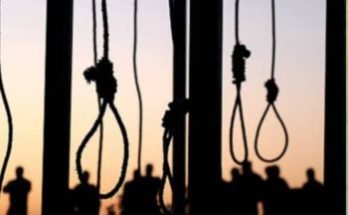Minister of Interior, Dr. Olubunmi Ojo, as part of ongoing reforms of Nigeria’s correctional service recently embarked on inmate audit, KEHINDE OSASONA gives more insight.
Six years ago, President Muhammadu Buhari as part of the administration’s resolve for reform of the Nigerian Prisons Service (NPS) changed the name to Nigerian Correctional Service, after signing the Nigerian Correctional Service Act 2019 into law.
By that singular action, the Act subdivided into Custodial Service and Non-custodial Service. repealed the Prisons Act and changed the name from Nigeria Prisons Service to Nigerian Correctional Service, otherwise known as the Correctional Service.
Although the bill was passed by the 8th National Assembly, the signing came over two months after the tenure of the Assembly expired.
Under custodial service, the law provides that while prisoners serve their jail terms, the emphasis is more on correctional service tailored towards readmitting them to society upon the completion of their jail sentences.
A key provision of the Act under Custodial Service Section 12 (2) (c), states that a condemned prisoner on death row can have their sentence reduced to life imprisonment after 10 years without being executed.
In addition, Section 12(8) empowers the state controller of the service to reject more intakes of inmates where it is apparent that the correctional centre in question is filled to capacity.
Despite the much-craved reforms, pundits and concerned Nigerians insist the correctional service was yet to met the expectations of many in a lot of areas.
However, some years after, the reform is still ongoing as the current administration has also consolidated by coming up with more modifications.
Matters arising
As the current administration was still on the reforms the spate of jailbreaks across prisons in Nigeria has further raised the reforms question with Nigerians raising issues.
No fewer than 10 jailbreaks have occurred since the name was changed from the Nigerian Prisons Service to the Nigerian Correctional Service by President Muhammadu Buhari on August 15, 2019.
Findings by Blueprint Weekend revealed that within the last 10 years, about 20 jailbreaks, occurred in Nigeria. Between 2021 and 2022 alone, no fewer than eight prison outbreaks were recorded in Nigeria with over 4,000 inmates fleeing as a result. Five prison breaks occurred in 2021 while three occurred in 2022 across the nation.
On April 5, 2021, 1,844 inmates escaped from the Owerri Correctional Centre, Imo state, after gunmen attacked the facility, after which the NCoS ordered a probe.
Few months later, July 8, 2021 to be specific, four awaiting trial inmates escaped from the Jos Custodial Centre, Plateau state.
In another jailbreak, on September 13, 2021, at Kabba Correctional Centre, Kogi state, over 2,400 inmates ran away. Also, on October 22, 2021, gunmen attacked the Abolongo Medium Security Custodial Centre in Oyo state, among many other jail breaks.
The last straw was at the Medium Security Custodial Centre, Suleja, Niger State, in April 2024, after a downpour damaged the facility with not less than 118 inmates fleeing the facilities.
Minister explains
The minister, while unveiling government plans to relocate 29 correctional centres from urban areas said the relocation became imperative to curtail the security risk the prisons posed to the society because of their closeness to urban centres.
Some of the prisons listed by the minister were Ikoyi correctional centre, Apapa, Agodi, Enugu, and Suleja.
Justifying further, the minister said the relocation of the correctional centres was necessitated by the audit carried out on all the 256 correctional centres in the country.
He faulted the citing of a correctional facility in Ikoyi, Lagos, saying a jail attack on the centre would not only damage the reputation of the country, but also worsen insecurity in the state.
“Our long term plan is the relocation of about 29 of our correctional centres that have been caught up with urbanisation.
“Urbanisation is a major issue; either we like it or not, if what we are about to achieve is to move Ikoyi, Apapa, Agodi, Enugu, couple with some others away from urban centres, but even if it is one that we achieve, we will would have done well.
“What is Ikoyi (prison) doing by sharing a fence with a polo club? What is a correctional centre doing in Ikoyi? God forbid, if there is a prison break in Ikoyi or a prison attack in Ikoyi, do you know the kind of damage that you will do to our reputation as a country, even the social fabric and everything?
“So, one of our main aims is to look at our correctional centres, for example, the Correctional Service Act, and by all international standards, every correctional centre should have a buffer of at least 100 meters from the next building.
NASS wades in
The development has since got the National Assembly. The Senate President, Godswill Akpabio, while delving on the issue recently attributed spate of jailbreaks on incompetence and deceit.
Speaking during the consideration of a Bill for the Amendment of the Revenue Mobilisation, Allocation and Fiscal Commission Act to draw attention to the ‘deceit’ in adopting the name, Nigeria Correctional Service Akpabio lamented that many jailbreaks have occurred after a change of name from the Nigeria Prisons Service to Nigeria Correctional Service.
He stated, “Since the adoption of that name, we have had more jailbreaks,” adding that “laws are meant to punish and to correct. If by the time you are convicted and you are sent to prison, you are even meant to learn a skill and ethical reorientation and all that. It is not only when we specifically call it a correctional centre and yet we are not correcting anything.
“I support the idea of having a thorough examination of the bill for the amendment of the RMAFC Act to avoid making the same mistake we made in coming up with the Correctional Services as a name.”
New move
Recently, the President Bola Tinubu’s administration also hinted that it would commence the audit of inmates across its 256 Custodial Centres in the country, with a view to decongesting the facilities.
Tunji-Ojo, who dropped the hint on the federal government’s intention, stated this in Kano after undertaking an inspection of the ongoing 3,000-capacity Maximum Security Custodial Centre in Janguza and Medium Security Custodial Centre in Kuje, Abuja.
According to the minister, the facilities are no longer prison but correctional centres for reforming the legally interned.
“Our custodial centres are no longer prisons. They are now correctional. They are transformational. They are reformatory institutions and Nigerians can know that the Renewed Hope Agenda is not just about the strongest in the society. It is both the strongest and the weakest in our society,” he said.
While justifying the audit of inmates, he said: “That is ongoing but the good thing for me is that we did a facility audit earlier and we can see that the result of the facility audit is how we are intervening.
“So, we are very empirical and scientific in our approach. We don’t just throw solutions to problems that are unknown.
“We discover the problems, we know the root cause of issues, and then we find solutions to them.
“So, the audit system is being empirical. It is scientific and that will lead massively to the decongestion of our Custodial Centres. It is not just saying you want to decongest. It is about you knowing the status. Life is all about data. Data is the new oil. Data is the blood of life in this millennium.
“The audit is going on and by the time we are done with the audit, you will see the level of decongestion that we will have as a result of the audit. So, we are just being empirical,” the minister added.




